- Home
- Packaging Products
- E Commerce Packaging Material Market Size, Future Growth and Forecast 2033
E Commerce Packaging Material Market Size, Future Growth and Forecast 2033
E Commerce Packaging Material Market Segments - by Material Type (Corrugated Boxes, Protective Packaging, Mailers, Others), End-User (Electronics, Fashion and Apparel, Food and Beverage, Health and Personal Care, Others), Application (Primary Packaging, Secondary Packaging, Tertiary Packaging), and Region (Asia Pacific, North America, Latin America, Europe, and Middle East & Africa) - Market Dynamics, Growth Opportunities, Strategic Drivers, and PESTLE Outlook (2025–2033)
E Commerce Packaging Material Market Outlook
The E Commerce Packaging Material market was valued at $48 billion in 2024 and is projected to reach $98 billion by 2033, growing at a CAGR of 8.2% during the forecast period 2025–2033. This market has seen significant growth due to the rapid expansion of e-commerce platforms globally. The increasing demand for sustainable and efficient packaging solutions is driving innovation in this sector. Companies are focusing on developing eco-friendly materials that not only protect products during transit but also minimize environmental impact. The rise in online shopping, especially in emerging economies, is further propelling the demand for diverse packaging materials that cater to various product categories.
However, the market faces challenges such as stringent regulations regarding packaging waste and recycling. Governments worldwide are implementing policies to reduce plastic usage, which is pushing companies to innovate and adopt biodegradable materials. Despite these challenges, the market holds immense growth potential due to the continuous evolution of e-commerce and consumer preferences for convenient and Sustainable Packaging solutions. The integration of advanced technologies like AI and IoT in packaging processes is expected to enhance efficiency and reduce costs, offering lucrative opportunities for market players.
Report Scope
| Attributes | Details |
| Report Title | E Commerce Packaging Material Market Size, Future Growth and Forecast 2033 |
| Base Year | 2024 |
| Historic Data | 2017-2023 |
| Forecast Period | 2025-2033 |
| Number of Pages | 161 |
| Material Type | Corrugated Boxes, Protective Packaging, Mailers, Others |
| End-User | Electronics, Fashion and Apparel, Food and Beverage, Health and Personal Care, Others |
| Application | Primary Packaging, Secondary Packaging, Tertiary Packaging |
| Region | Asia Pacific, North America, Latin America, Europe, Middle East & Africa |
| Customization Available | Yes* |
Opportunities & Threats
The E Commerce Packaging Material market presents numerous opportunities, primarily driven by the increasing consumer preference for online shopping. As more consumers turn to e-commerce for their shopping needs, the demand for efficient and reliable packaging solutions continues to rise. This trend is particularly evident in emerging markets where internet penetration and smartphone usage are on the rise. Companies that can offer innovative, sustainable, and cost-effective packaging solutions are well-positioned to capitalize on this growing demand. Additionally, the shift towards Personalized Packaging solutions offers a unique opportunity for businesses to differentiate themselves and enhance customer experience.
Another significant opportunity lies in the development of eco-friendly packaging materials. With growing environmental concerns and regulatory pressures, there is a strong push towards reducing plastic waste and adopting sustainable packaging solutions. Companies that invest in research and development to create biodegradable and recyclable packaging materials can gain a competitive edge in the market. Furthermore, the integration of smart packaging technologies, such as QR codes and RFID tags, can enhance product tracking and improve supply chain efficiency, offering additional value to e-commerce businesses.
Despite the promising opportunities, the market faces certain threats that could hinder its growth. One of the primary challenges is the stringent regulatory environment surrounding packaging waste and recycling. Governments across the globe are implementing policies to curb plastic usage and promote sustainable practices, which can increase operational costs for companies. Additionally, the fluctuating prices of raw materials used in packaging can impact profit margins. Companies need to navigate these challenges by adopting innovative solutions and optimizing their supply chains to remain competitive in the market.
The competitive landscape of the E Commerce Packaging Material market is characterized by the presence of several key players who dominate the market share. These companies are continuously striving to enhance their product offerings and expand their market presence through strategic partnerships, mergers, and acquisitions. The market is highly fragmented, with a mix of global and regional players competing for market share. The leading companies in this market are focusing on innovation and sustainability to meet the evolving demands of consumers and regulatory requirements.
One of the major players in the market is International Paper Company, which holds a significant market share due to its extensive product portfolio and strong distribution network. The company is known for its sustainable packaging solutions and has been investing in research and development to enhance its product offerings. Another key player is Smurfit Kappa Group, which is renowned for its innovative packaging solutions and commitment to sustainability. The company has a strong presence in Europe and is expanding its operations in other regions to capture a larger market share.
WestRock Company is another prominent player in the market, known for its comprehensive range of packaging solutions and focus on customer-centric innovations. The company has been actively involved in mergers and acquisitions to strengthen its market position and expand its product portfolio. DS Smith Plc is also a key player, recognized for its sustainable packaging solutions and strong focus on innovation. The company has a robust presence in Europe and is expanding its operations in North America and Asia Pacific to tap into the growing demand for e-commerce packaging materials.
Other notable companies in the market include Mondi Group, Amcor Plc, and Sealed Air Corporation. Mondi Group is known for its innovative and sustainable packaging solutions, while Amcor Plc is a global leader in developing and producing responsible packaging solutions. Sealed Air Corporation is renowned for its Protective Packaging solutions and has been focusing on expanding its product offerings to cater to the growing e-commerce market. These companies are investing heavily in research and development to create innovative and sustainable packaging solutions that meet the evolving needs of consumers and regulatory requirements.
Key Highlights E Commerce Packaging Material Market

- Increasing demand for sustainable and eco-friendly packaging solutions.
- Rapid growth of e-commerce platforms driving market expansion.
- Integration of advanced technologies like AI and IoT in packaging processes.
- Rising consumer preference for personalized packaging solutions.
- Stringent regulations promoting sustainable packaging practices.
- Growing demand for protective packaging solutions in the electronics sector.
- Expansion of key players in emerging markets to capture growth opportunities.
- Development of biodegradable and recyclable packaging materials.
- Focus on enhancing supply chain efficiency through smart packaging technologies.
- Increasing investments in research and development for innovative packaging solutions.
Top Countries Insights in E Commerce Packaging Material
The United States is one of the leading markets for e-commerce packaging materials, with a market size of $15 billion and a CAGR of 10%. The country's robust e-commerce infrastructure and high consumer spending power drive the demand for efficient packaging solutions. Additionally, the focus on sustainability and regulatory pressures to reduce packaging waste are encouraging companies to adopt eco-friendly materials.
China is another significant market, with a market size of $12 billion and a CAGR of 12%. The country's booming e-commerce industry, driven by a large consumer base and increasing internet penetration, is fueling the demand for diverse packaging materials. The government's initiatives to promote sustainable practices and reduce plastic waste are also influencing market dynamics.
Germany, with a market size of $8 billion and a CAGR of 9%, is a key player in the European market. The country's strong focus on sustainability and innovation in packaging solutions is driving market growth. The demand for protective packaging solutions, particularly in the electronics and automotive sectors, is contributing to the market's expansion.
India, with a market size of $6 billion and a CAGR of 15%, is an emerging market with significant growth potential. The rapid growth of the e-commerce sector, coupled with increasing consumer awareness about sustainable packaging, is driving demand. The government's initiatives to promote digitalization and e-commerce are further boosting market growth.
The United Kingdom, with a market size of $5 billion and a CAGR of 8%, is another important market in Europe. The country's well-established e-commerce industry and focus on sustainability are key growth drivers. The demand for innovative and personalized packaging solutions is also contributing to market expansion.
Value Chain Profitability Analysis
The value chain of the E Commerce Packaging Material market involves several key stakeholders, including raw material suppliers, packaging manufacturers, distributors, and end-users. Each stage of the value chain plays a crucial role in determining the overall profitability and efficiency of the market. Raw material suppliers provide essential inputs such as paper, plastic, and adhesives, which are critical for packaging production. The cost of these materials significantly impacts the pricing and profitability of packaging manufacturers.
Packaging manufacturers are responsible for converting raw materials into finished products that meet the specific requirements of e-commerce businesses. They focus on innovation and efficiency to reduce production costs and enhance product quality. Distributors play a vital role in ensuring the timely delivery of packaging materials to end-users, maintaining a seamless supply chain. End-users, primarily e-commerce companies, demand packaging solutions that are cost-effective, sustainable, and capable of protecting products during transit.
The profitability of each stakeholder in the value chain varies based on factors such as production costs, pricing strategies, and market demand. Raw material suppliers typically operate on thin margins due to the competitive nature of the market. Packaging manufacturers can achieve higher profitability by optimizing production processes and offering value-added services. Distributors benefit from economies of scale and efficient logistics operations. End-users focus on minimizing packaging costs while ensuring product safety and sustainability.
Evolving Market Dynamics (2018–2024) and Strategic Foresight (2025–2033)
The E Commerce Packaging Material market has undergone significant changes between 2018 and 2024, driven by the rapid growth of e-commerce and increasing consumer demand for sustainable packaging solutions. During this period, the market experienced a CAGR of 7.5%, with a notable shift towards eco-friendly materials and innovative packaging designs. The integration of advanced technologies such as AI and IoT in packaging processes enhanced efficiency and reduced costs, contributing to market growth.
Looking ahead to the period from 2025 to 2033, the market is expected to continue its upward trajectory, with a projected CAGR of 8.2%. The focus on sustainability and regulatory pressures to reduce packaging waste will drive innovation and the adoption of biodegradable materials. The demand for personalized and smart packaging solutions will further fuel market growth. Companies will need to adapt to changing consumer preferences and invest in research and development to remain competitive in the evolving market landscape.
E Commerce Packaging Material Market Segments Insights

Material Type Analysis
The material type segment of the E Commerce Packaging Material market includes Corrugated Boxes, protective packaging, mailers, and others. Corrugated boxes are the most widely used packaging material due to their durability, cost-effectiveness, and recyclability. The demand for corrugated boxes is driven by the need for secure and sustainable packaging solutions in the e-commerce sector. Protective packaging, including Bubble Wrap and foam, is essential for safeguarding fragile items during transit. The increasing demand for electronics and delicate products is boosting the growth of this sub-segment. Mailers, including padded envelopes and poly mailers, are popular for shipping small and lightweight items. The focus on reducing packaging waste and enhancing sustainability is driving innovation in this segment.
End-User Analysis
The end-user segment of the E Commerce Packaging Material market comprises electronics, fashion and apparel, food and beverage, health and personal care, and others. The electronics sector is a major contributor to market growth, with a high demand for protective and secure packaging solutions. The fashion and apparel industry relies on packaging materials that offer both protection and aesthetic appeal. The food and beverage sector requires packaging solutions that ensure product safety and freshness. The health and personal care industry demands packaging materials that are both functional and environmentally friendly. The diverse needs of these end-users drive innovation and competition in the market.
Application Analysis
The application segment of the E Commerce Packaging Material market includes primary packaging, Secondary Packaging, and tertiary packaging. Primary packaging refers to the immediate packaging that comes into direct contact with the product. It is crucial for protecting the product and providing essential information to consumers. Secondary packaging is used for branding and marketing purposes, as well as for grouping multiple products together. Tertiary packaging is used for bulk handling and transportation, ensuring the safe delivery of products to end-users. The demand for efficient and sustainable packaging solutions across these applications is driving market growth.
Regional Analysis
The regional segment of the E Commerce Packaging Material market includes Asia Pacific, North America, Latin America, Europe, and the Middle East & Africa. Asia Pacific is the largest market, driven by the rapid growth of e-commerce in countries like China and India. North America is a mature market with a strong focus on sustainability and innovation. Europe is characterized by stringent regulations and a high demand for eco-friendly packaging solutions. Latin America and the Middle East & Africa are emerging markets with significant growth potential, driven by increasing internet penetration and consumer awareness.
E Commerce Packaging Material Market Segments
The E Commerce Packaging Material market has been segmented on the basis of
Material Type
- Corrugated Boxes
- Protective Packaging
- Mailers
- Others
End-User
- Electronics
- Fashion and Apparel
- Food and Beverage
- Health and Personal Care
- Others
Application
- Primary Packaging
- Secondary Packaging
- Tertiary Packaging
Region
- Asia Pacific
- North America
- Latin America
- Europe
- Middle East & Africa
Primary Interview Insights
What are the key drivers of growth in the E Commerce Packaging Material market?
What challenges does the market face?
How are companies addressing sustainability in packaging?
What role does technology play in the packaging industry?
What are the future growth opportunities in this market?
Latest Reports

The fiber drums market was valued at $1.2 billion in 2024 and is projected to reach $2.1 billion by 2033, growing at a CAGR of 6.5% during the forecast period 2025–2033.

The cosmetics and perfumery glass bottles market was valued at $1.5 billion in 2024 and is projected to reach $2.3 billion by 2033, growing at a CAGR of 4.8% during the forecast period 2025–2033.

The medical devices packaging market was valued at $25 billion in 2024 and is projected to reach $40 billion by 2033, growing at a CAGR of 5.5% during the forecast period 2025–2033.
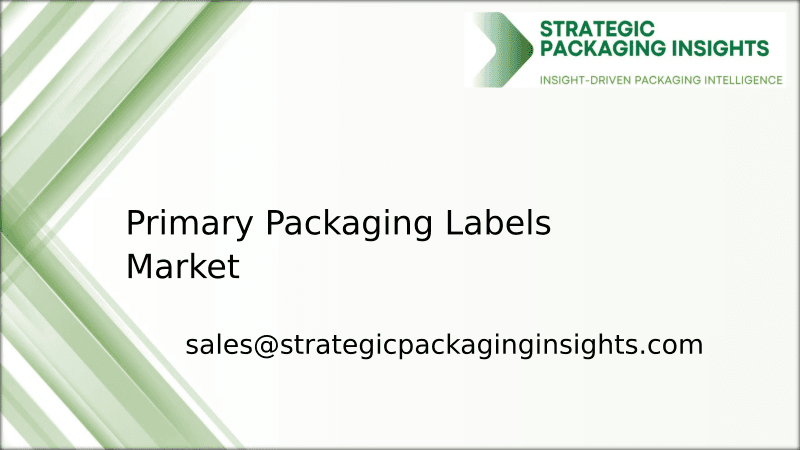
The primary packaging labels market was valued at $35 billion in 2024 and is projected to reach $55 billion by 2033, growing at a CAGR of 5.2% during the forecast period 2025–2033.

The corrugated board packaging market was valued at $250 billion in 2024 and is projected to reach $380 billion by 2033, growing at a CAGR of 4.5% during the forecast period 2025–2033.

The Water Soluble Packaging Films market was valued at $2.8 billion in 2024 and is projected to reach $5.6 billion by 2033, growing at a CAGR of 8.1% during the forecast period 2025–2033.

The Aluminium Foil Packaging market was valued at $25 billion in 2024 and is projected to reach $40 billion by 2033, growing at a CAGR of 5.5% during the forecast period 2025–2033.

The self-heating food packaging market was valued at $4.5 billion in 2024 and is projected to reach $7.8 billion by 2033, growing at a CAGR of 6.2% during the forecast period 2025–2033.

The Smart Container market was valued at $2.5 billion in 2024 and is projected to reach $8.7 billion by 2033, growing at a CAGR of 14.5% during the forecast period 2025–2033.

The Automatic Labeling Machine market was valued at $2.5 billion in 2024 and is projected to reach $4.8 billion by 2033, growing at a CAGR of 7.2% during the forecast period 2025–2033.

The Hot Melt Glue Labeler market was valued at $1.2 billion in 2024 and is projected to reach $2.3 billion by 2033, growing at a CAGR of 6.5% during the forecast period 2025–2033.

The Ethical Label market was valued at $1.5 billion in 2024 and is projected to reach $3.2 billion by 2033, growing at a CAGR of 8.5% during the forecast period 2025–2033.

The Packaging Tensioner market was valued at $1.2 billion in 2024 and is projected to reach $2.3 billion by 2033, growing at a CAGR of 6.5% during the forecast period 2025–2033.
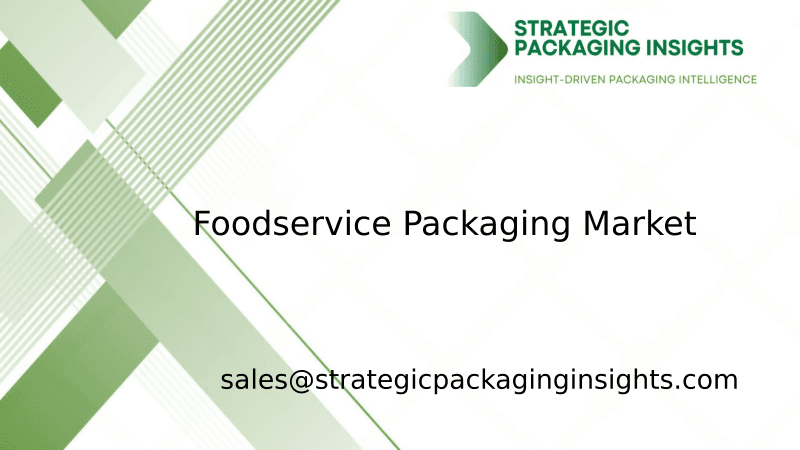
The foodservice packaging market was valued at $120 billion in 2024 and is projected to reach $180 billion by 2033, growing at a CAGR of 4.5% during the forecast period 2025–2033.

The nano-enabled packaging market was valued at $15.2 billion in 2024 and is projected to reach $35.6 billion by 2033, growing at a CAGR of 9.5% during the forecast period 2025–2033.
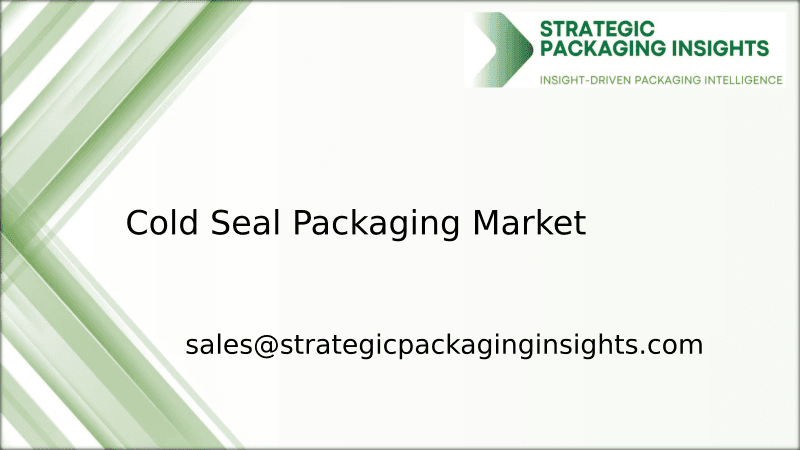
The Cold Seal Packaging market was valued at $1.5 billion in 2024 and is projected to reach $2.3 billion by 2033, growing at a CAGR of 4.8% during the forecast period 2025–2033.

The Transparent Barrier Packaging Films market was valued at $12.5 billion in 2024 and is projected to reach $20.3 billion by 2033, growing at a CAGR of 5.8% during the forecast period 2025–2033.

The Flatback Tape market was valued at $2.5 billion in 2024 and is projected to reach $4.1 billion by 2033, growing at a CAGR of 5.8% during the forecast period 2025–2033.
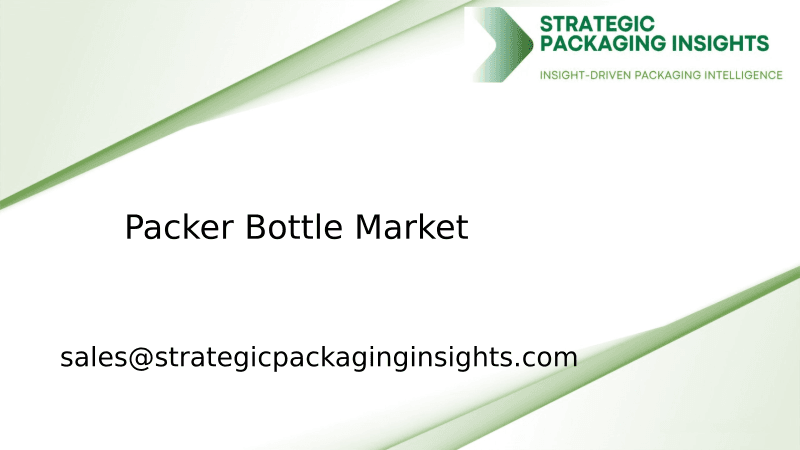
The packer bottle market was valued at $3.5 billion in 2024 and is projected to reach $5.8 billion by 2033, growing at a CAGR of 5.2% during the forecast period 2025–2033.
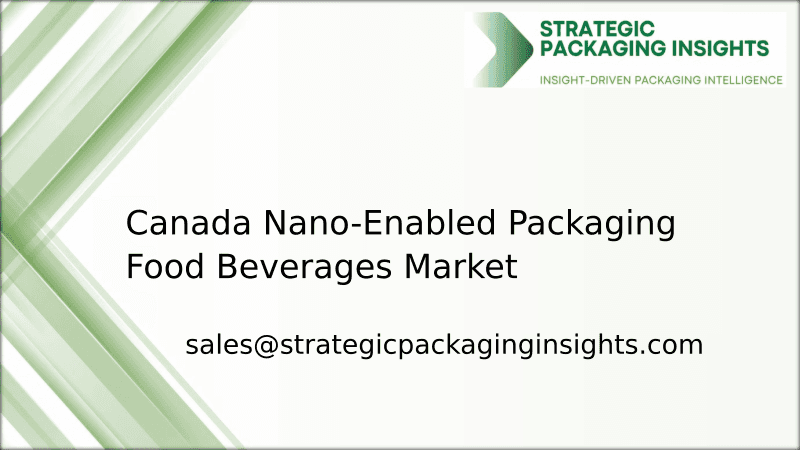
The Canada Nano-Enabled Packaging Food Beverages market was valued at $1.2 billion in 2024 and is projected to reach $3.5 billion by 2033, growing at a CAGR of 12.5% during the forecast period 2025–2033.

The India Aluminum Beverage Can market was valued at $1.2 billion in 2024 and is projected to reach $2.5 billion by 2033, growing at a CAGR of 8.5% during the forecast period 2025–2033.
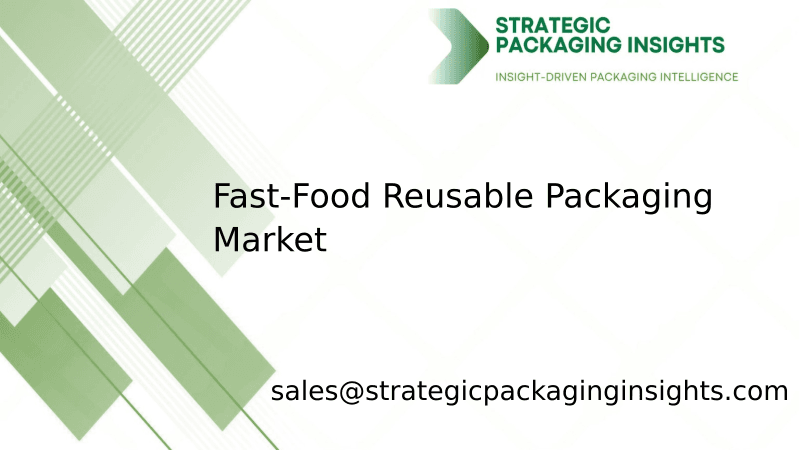
The fast-food reusable packaging market was valued at $1.2 billion in 2024 and is projected to reach $3.5 billion by 2033, growing at a CAGR of 12.5% during the forecast period 2025–2033.

The pallets market was valued at $59.91 billion in 2024 and is projected to reach $88.69 billion by 2033, growing at a CAGR of 4.5% during the forecast period 2025–2033.

The lamination adhesives market was valued at $2.5 billion in 2024 and is projected to reach $4.1 billion by 2033, growing at a CAGR of 5.8% during the forecast period 2025–2033.

The garment packing machine market was valued at $1.2 billion in 2024 and is projected to reach $2.5 billion by 2033, growing at a CAGR of 8.5% during the forecast period 2025–2033.

The fiber drums market was valued at $1.2 billion in 2024 and is projected to reach $2.1 billion by 2033, growing at a CAGR of 6.5% during the forecast period 2025–2033.

The cosmetics and perfumery glass bottles market was valued at $1.5 billion in 2024 and is projected to reach $2.3 billion by 2033, growing at a CAGR of 4.8% during the forecast period 2025–2033.

The medical devices packaging market was valued at $25 billion in 2024 and is projected to reach $40 billion by 2033, growing at a CAGR of 5.5% during the forecast period 2025–2033.

The primary packaging labels market was valued at $35 billion in 2024 and is projected to reach $55 billion by 2033, growing at a CAGR of 5.2% during the forecast period 2025–2033.

The corrugated board packaging market was valued at $250 billion in 2024 and is projected to reach $380 billion by 2033, growing at a CAGR of 4.5% during the forecast period 2025–2033.

The Water Soluble Packaging Films market was valued at $2.8 billion in 2024 and is projected to reach $5.6 billion by 2033, growing at a CAGR of 8.1% during the forecast period 2025–2033.

The Aluminium Foil Packaging market was valued at $25 billion in 2024 and is projected to reach $40 billion by 2033, growing at a CAGR of 5.5% during the forecast period 2025–2033.

The self-heating food packaging market was valued at $4.5 billion in 2024 and is projected to reach $7.8 billion by 2033, growing at a CAGR of 6.2% during the forecast period 2025–2033.

The Smart Container market was valued at $2.5 billion in 2024 and is projected to reach $8.7 billion by 2033, growing at a CAGR of 14.5% during the forecast period 2025–2033.

The Automatic Labeling Machine market was valued at $2.5 billion in 2024 and is projected to reach $4.8 billion by 2033, growing at a CAGR of 7.2% during the forecast period 2025–2033.

The Hot Melt Glue Labeler market was valued at $1.2 billion in 2024 and is projected to reach $2.3 billion by 2033, growing at a CAGR of 6.5% during the forecast period 2025–2033.

The Ethical Label market was valued at $1.5 billion in 2024 and is projected to reach $3.2 billion by 2033, growing at a CAGR of 8.5% during the forecast period 2025–2033.

The Packaging Tensioner market was valued at $1.2 billion in 2024 and is projected to reach $2.3 billion by 2033, growing at a CAGR of 6.5% during the forecast period 2025–2033.

The foodservice packaging market was valued at $120 billion in 2024 and is projected to reach $180 billion by 2033, growing at a CAGR of 4.5% during the forecast period 2025–2033.

The nano-enabled packaging market was valued at $15.2 billion in 2024 and is projected to reach $35.6 billion by 2033, growing at a CAGR of 9.5% during the forecast period 2025–2033.

The Cold Seal Packaging market was valued at $1.5 billion in 2024 and is projected to reach $2.3 billion by 2033, growing at a CAGR of 4.8% during the forecast period 2025–2033.

The Transparent Barrier Packaging Films market was valued at $12.5 billion in 2024 and is projected to reach $20.3 billion by 2033, growing at a CAGR of 5.8% during the forecast period 2025–2033.

The Flatback Tape market was valued at $2.5 billion in 2024 and is projected to reach $4.1 billion by 2033, growing at a CAGR of 5.8% during the forecast period 2025–2033.

The packer bottle market was valued at $3.5 billion in 2024 and is projected to reach $5.8 billion by 2033, growing at a CAGR of 5.2% during the forecast period 2025–2033.

The Canada Nano-Enabled Packaging Food Beverages market was valued at $1.2 billion in 2024 and is projected to reach $3.5 billion by 2033, growing at a CAGR of 12.5% during the forecast period 2025–2033.

The India Aluminum Beverage Can market was valued at $1.2 billion in 2024 and is projected to reach $2.5 billion by 2033, growing at a CAGR of 8.5% during the forecast period 2025–2033.

The fast-food reusable packaging market was valued at $1.2 billion in 2024 and is projected to reach $3.5 billion by 2033, growing at a CAGR of 12.5% during the forecast period 2025–2033.

The pallets market was valued at $59.91 billion in 2024 and is projected to reach $88.69 billion by 2033, growing at a CAGR of 4.5% during the forecast period 2025–2033.

The lamination adhesives market was valued at $2.5 billion in 2024 and is projected to reach $4.1 billion by 2033, growing at a CAGR of 5.8% during the forecast period 2025–2033.

The garment packing machine market was valued at $1.2 billion in 2024 and is projected to reach $2.5 billion by 2033, growing at a CAGR of 8.5% during the forecast period 2025–2033.
